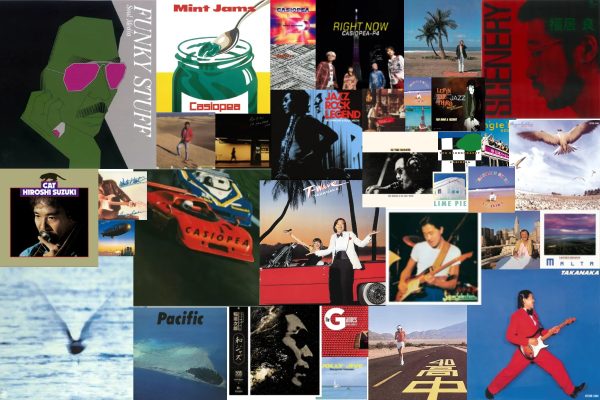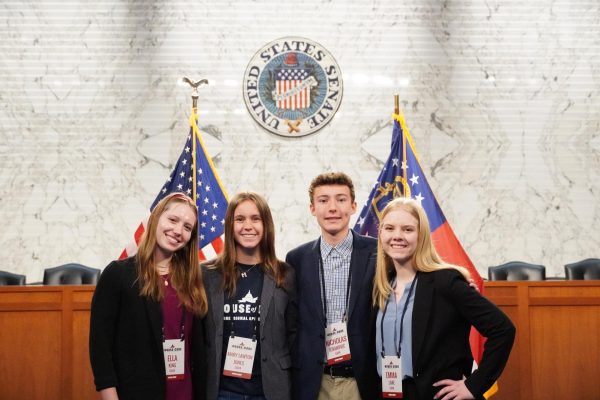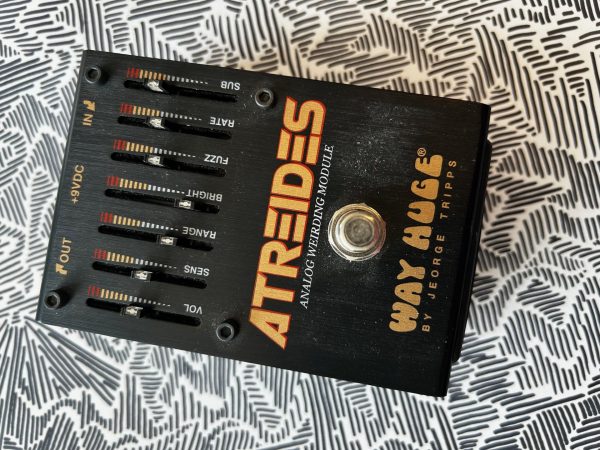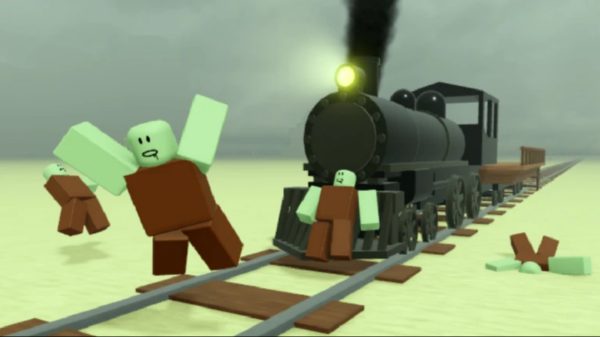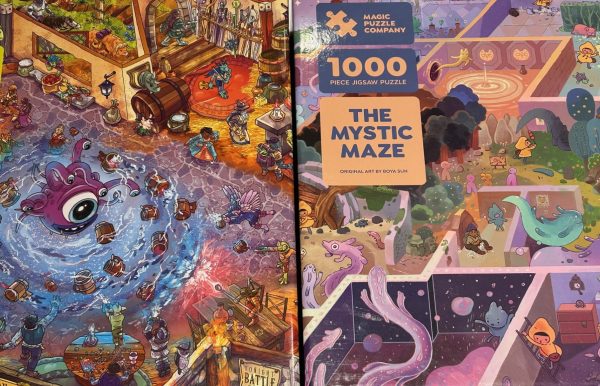A Q&A with Chamblee Alum and Rapper Caleb Colossus
Caleb Colossus—you might recognize the name if you’ve ever heard of or watched Netflix’s Rhythm + Flow, a hip-hop music competition television show in which unsigned rappers compete for the opportunity to win a $250,000 grand cash prize. The show features a panel of three Grammy Award-winning judges—Chance the Rapper, Cardi B, and T.I.—as well as a slew of other just as well-known celebrity guest judges.
Colossus was one of the contestants on the show’s first season and managed to place fifth place overall in the competition. While he didn’t win the grand prize of $250,000, he was able to gain much publicity and traction that would ultimately lead him to release his first EP, “When Paint Smears,” in 2019.
However, before Rhythm + Flow and all the fame, Colossus attended and graduated from Chamblee Charter High School in the class of 2013. In fact, it was at Chamblee Middle School where he initially started rapping and eventually was able to make a career out of it. A member of the football team during his time here, Colossus was more than involved in school spirit and continues to represent Chamblee as a proud alum to this day.
The following is a Q&A between The Blue & Gold and Caleb Colossus.
What’s your favorite memory from all your four years at Chamblee?
My favorite memory from my time at Chamblee High was definitely the 2012 senior football season with my teammates. The year was so special for me personally. I spent so much time with my fellow senior teammates over the years, and the majority of us had been playing football together for six years (since 7th grade at Chamblee Middle). We had a rough couple of years of losing and coming up short in games. However, our new coach, Allen Johnson, wanted to immediately change the mindset and culture in the locker room. He made us believe that we could win every game we went into.
With that mindset, we started the season off 8-0! That following week, we played (an also undefeated) Marist at North Dekalb Stadium in one of the most highly anticipated games in Chamblee history (Fox 5 “Game of the Week”). We came up short in that game and finished the season 8-2. We were essentially robbed of the playoffs (due to Georgia seeding rules). Although we didn’t [win] the championship, the memories that stuck out to me the most were the summer workouts, pregame meals, practices, locker room banter, pregame warm-ups, and [running] through that banner pregame with the guys I had grown such a close bond with over the years. We were an extremely talented group. 11 of us went on to play college ball at the next level.
What was your favorite aspect of Chamblee that you really missed after you graduated and left?
I really miss the camaraderie that my senior class had with one another. After one of our fellow classmates tragically passed away our sophomore year, our whole class grew very close – this was prevalent during lunch, class changes, after school, and outside of school (parties and events).
Who were some of your favorite teachers that you can recall?
My favorite teachers at Chamblee were Ms. Keathley, Ms.Tinnell, Mr. Winkler, and of course, Coach Burgess. I had a creative writing class with Ms. Keathley. I can definitely say she further sparked my love for writing.
What’s your story as to how you got started rapping and when did you realize that you could make a career off of it? Did it start at Chamblee?
I think it’s actually pretty funny because I did start rapping during my time at Chamblee (well, Chamblee Middle at least). In the mornings in middle school, we would gather in the gymnasium before class. It became sort of a known thing that the guys would either rap or playfully “roast” each other, or both. During these days, kids would beat on the bleachers with fists and pens. I actively took part in freestyling and over time, I began to realize I was actually pretty good at it. […] This casual hobby carried over into high school when my best friend, at the time, started making his beats in his basement. He began to get really good at producing, and I began to take my raps a little more seriously and [wrote] them down. When we both realized that what we were doing was no longer a hobby but a passion, he began to send me his beats pretty frequently, and I would write to them. The rest is history!
Which artists do you most draw inspiration from in your music?
I’ve been inspired by so many different artists throughout my life, but my biggest inspiration, hands down, has always been Kanye West. Kanye’s artistic ability, his talent in production, his creativity, his lyrics, and just the passion and relatability of his music always resonated with me. When I was a sophomore in high school (in 2010), Kanye released My Beautiful Dark Twisted Fantasy, which is hands down my favorite album of all time. That album is what really enhanced my passion for music. I can also credit a few other artists such as Kid Cudi, Outkast, Lupe Fiascom, and J. Cole [for] playing integral parts in my musical upbringing. Outkast’s Speakerboxxx/The Love Below was the first album I actively listened to. Lupe Fiasco’s The Cool was my first favorite album. Kid Cudi made me feel emotions that I’ve never had from music. J.Cole [is who I] credit the most for inspiring my rap style [through] delivery and cadence.
Could you briefly walk us through and give me a brief description of your experience on Rhythm + Flow as well as how you got there?
Rhythm + Flow was the craziest experience of my life. I think the craziest part about it all was the way I got on the show. I remember numerous friends randomly tagged me on an Instagram post regarding signing up for the show from Chance the Rapper. At the time, I just graduated college, had applied to, and been turned down by so many jobs that I had slipped into a stint of self-doubt and depression. My mindset towards even wasting the five minutes it took me to apply was “What’s point? They’re never going to pick me.”
Weeks later, I got a random call from a Los Angeles number while I was driving on I-20. I almost didn’t pick up but it turns out it was from a producer of the show. From that point on, things just kept getting crazier and crazier until it finally dawned on me that I [was] actually on my way to Hollywood. As far as the show goes, that month I spent out in Hollywood was one of those moments in life that you’re living through and realize (even in the moment) that what you’re experiencing could potentially alter the trajectory of your life. I had never been to California. I had never had cameras in my face for 10 hours a day. I had never been surrounded by such talented artists. I had never consistently interacted with A-list celebrities. I had never had a hotel on Hollywood Boulevard with two beds to myself. Most importantly, I had never performed before.
The one thing that I had done before was learn the importance of soaking up the moment and [seizing] an opportunity. The whole time I was in Los Angeles, I constantly told myself to have fun and make the most of the situation because I knew wholeheartedly, that I would never get a chance like that again. As for the show, I can honestly say that I have never been in a more high-pressure situation in my life but in the same token, it was the most rewarding experience.
I had played in numerous football games, basketball games, track meets, presentations, job interviews, and many other nerve-wracking experiences in my life but nothing tops waiting in a room for 7-8 hours with cameras filming you, being called into the stage room and hearing (but not seeing) a large crowd and then finally being given a microphone with hundreds of faces looking at you. Then staring into the audience and seeing 3 Grammy award-winning artists waiting for you to open your mouth.
When I make music, I normally write first instead of coming into the studio and figuring it out. I had also never been in a situation where I was in the studio and had to write and record a song on the spot. We were given five hours to record a song and then another 5 hours to finish the song the next day—while cameras were rolling. When I came to Hollywood, I had no idea what exactly to expect or how many artists were competing, so truthfully, I didn’t necessarily have the mindset that I was going to win the competition. Every round, I just wanted to focus, execute, and do my best to make it to the next round.
It wasn’t until it dwindled down to 8 people that I realized, “Caleb, you can actually win this thing.” Some of the best things I gained from the experience were the relationships that I developed with my fellow contestants, producers, stylists, and other people that worked on the show. I still keep in contact with a majority of them to this day.
You released your debut EP, “When Paint Smears,” in 2019. What’s next for your career and do you have any current plans for a new album in the near future?
Colossus: After an experience like that, answering the ‘what’s next?’ question has been a little weird – I must admit. Honestly, I’ve been doing a lot of figuring things out with my management team. COVID-19 has killed a lot of momentum I had from Rhythm + Flow – I was doing numerous performances in several states before the pandemic ultimately ended all live performances for the time being. Now, I’ve been working on features with other artists and working on another project of my own that I believe will surpass “When Paint Smears.” I’m not sure how yet, but you will definitely hear more from me very soon.
If you had to choose one or two songs from your discography to show to someone who has never listened to your music before, which track(s) would it be and why?
If I had to pick two songs from my discography for someone to listen to that’s never heard of me it would be “Everyone Knows” and “Michelangelo.” I feel like those are the two songs that give the best introduction to who I am as an artist [and a person]. Sonically, they are also probably my favorites as well. I really feel like the lyrics in both songs capture the deep emotion I had when I was writing them and accurately tell a compacted version of my story.
And finally, you have been very vocal in your support for the Black Lives Matter movement on social media and in-person; what is something about the movement, institutionalized racism, or police brutality that you think is important for the general public or the Chamblee community to hear?
For starters, the thing I loved most about going to Chamblee was how culturally diverse and accepting everyone was—which isn’t very common in your typical American high school. It’s always been great to see a lot of nonblack friends that I went to school with be so adamant about “Black Lives Matter” and police brutality on social media, in person at protests, and wherever else, and truly know that they are doing everything in their power to be real allies for the cause. I could honestly talk about this topic for days, but I think the main point I’d want to get across is that it’s very telling that the term “black lives matter” has become a political topic in this country.
The fact that [the] term offends people who aren’t black and makes them uncomfortable is very alarming. This phrase shouldn’t ever need to be vocalized or politicized but yet, here we are in 2020 fighting for the same issues in regard to equality that are as simple as common human decency and the expression of the right to be alive as a black person in America. I think the main point I want to make and address to the general public is that just because you can’t personally relate to something doesn’t mean that someone else’s experience is invalid or doesn’t exist.
[Many white Americans] personally have never [experienced] true racism, institutional racism, or have never felt threatened/feared for their lives with law enforcement, [and] in order to have a real chance in regards to race in America, it is going to take people who are not affected to deeply care and want to make significant changes to help the people who are affected. The only way that this will happen is if people stop deflecting and avoiding these tough conversations.
Your donation will support the student journalists of Chamblee High School Blue & Gold. Your contribution will allow us to print editions of our work and cover our annual website hosting costs. Currently, we are working to fund a Halloween satire edition.
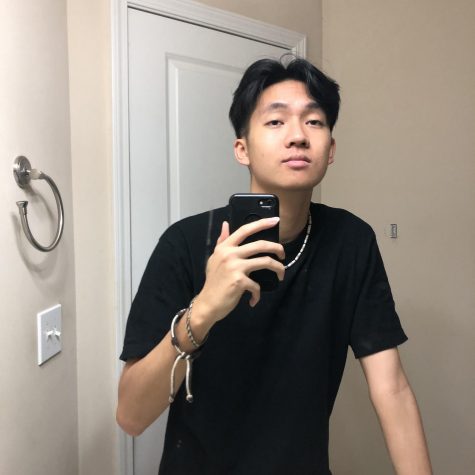
Henry Diep is a senior and staff writer for the Blue & Gold. In his free time, you can find him patiently waiting for a J. Cole and Kendrick Lamar album to drop, searching for new music to listen to, and emotionally investing himself into the outcomes of basketball games. In five years, he hopes to have possibly graduated from high school. This is his second year on the staff.

